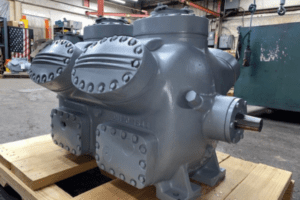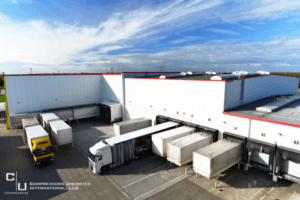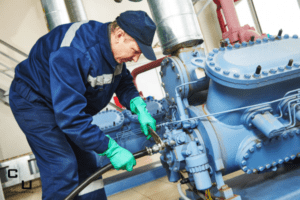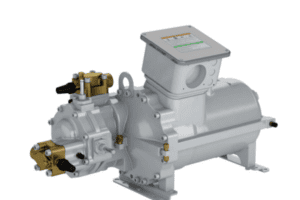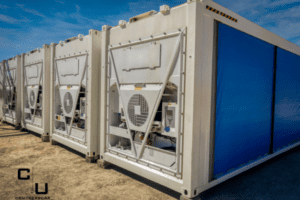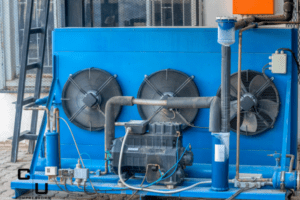What is SEER? Before the SEER rating was developed, central cooling systems were rated based on the amount of energy consumed while running at full capacity in controlled environments. Because this method wasn’t accurate enough, the SEER rating was adopted. The acronym SEER stands for Seasonal Energy Efficiency Ratio. Basically, it represents the ratio of a unit’s capacity to the power it consumes in order to provide a specific cooling output during typical day-to-day use.
Looking Beyond the SEER Rating
In addition to the energy used by an HVAC system during operation, the SEER rating includes other essential elements, such as energy consumption in standby mode, the system’s part-load efficiency, fluctuating thermal loads throughout buildings, and climate zones. Because the SEER rating is a general indicator of a central cooling system’s efficiency, the higher the rating, the more energy efficient the unit is.
As an example, commercial and industrial HVAC systems with high SEER ratings are more energy efficient because they often include larger compressor models as well as larger condenser and evaporator coils. These components can better accommodate the workload fluctuations in commercial and industrial settings.
Quality
Does a higher rating also mean that a system is better made than lower SEER rated equipment? To provide a straight answer to this question, a high SEER rating indicates just the efficiency of a system, not its quality. The quality is typically the same.
But even though commercial and industrial compressors are made from the same materials and by the same leading manufacturers, such as Carrier/Carlyle, Copeland, Trane, York, Bitzer, Danfoss, Frascold, and Hitachi, certain designs are being specifically developed to fit different large-scale applications with a focus on energy efficiency.
Furthermore, some compressor models are equipped with new technologies, such as the variable frequency drive, moduload capacity control, inverter and digital scroll technologies. These technologies can significantly increase the efficiency, performance, and reliability of an HVAC system.
Cost
Another important consideration is that the SEER rating can be a factor in the cost of commercial and industrial HVAC equipment. In general, a unit with a higher SEER rating is more expensive than one with a lower rating. It’s critical to remember, however, that the difference in price is often recouped through significantly lower energy bills.
Furthermore, the standards for HVAC systems have been evolving steadily to reflect the need to conserve energy and protect the environment. It is for this reason a regional factor has been introduced into the SEER rating system since 2011. This factor allows for setting minimum SEER rating requirements according to geographical locations.
Factors to Consider
If you’re in the market for a commercial or industrial HVAC system, opting for a model with a higher SEER rating will allow you to generate greater savings. Although the SEER rating is a reliable indicator of efficiency, it’s important to know that a few other factors can affect the performance and efficiency of your system. Including its location, sizing, design, installation procedures, and the type of insulation used. As an example, if an HVAC unit isn’t installed correctly, it may fail to achieve its advertised SEER rating.
To learn more about SEER ratings and how they reflect the performance and efficiency of HVAC systems, feel free to contact us or call us directly at 972-286-2264. Our professionals will be more than happy to answer your questions.


